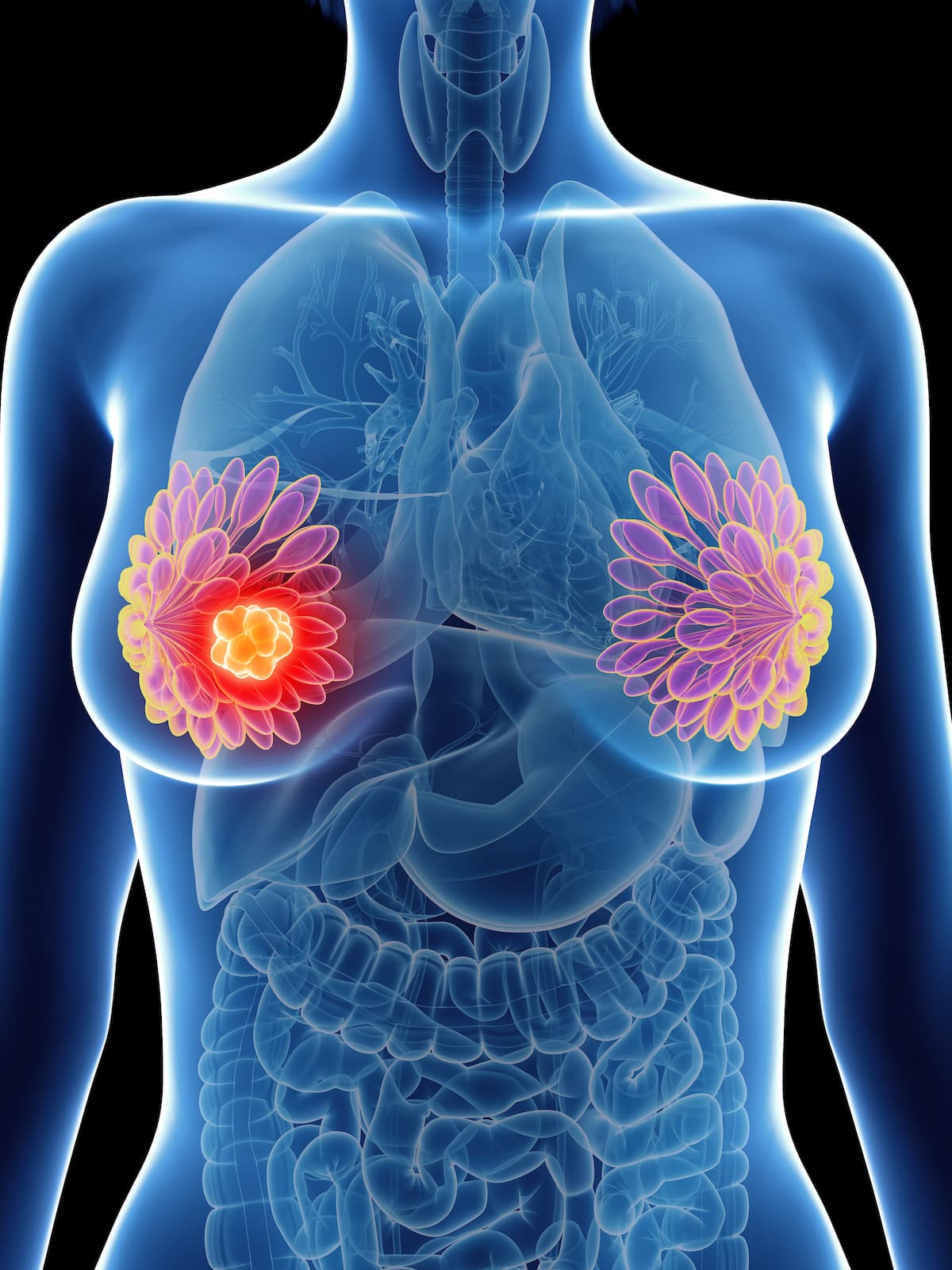Metabolism, Genetics May Impact Tumor Biology in Breast Cancer Populations
Latin American patients appear more likely to be diagnosed with aggressive early-stage breast cancer based on factors including metabolics and genetics, according to findings from the FLEX study.
“Based on these results, obesity seems to affect Latin American and Black breast cancer biology differently than [in] non-Hispanic White patients. Immune system differences derived from genetic ancestry may be involved,” according to Marcela Mazo-Canola, MD.

Clinical and genomic factors including obesity appear to contribute to a higher proportion of aggressive breast cancer biology in Latin American and Black patients compared with non-Hispanic patients, according to findings from the FLEX study (NCT03053193) presented at the 2023 San Antonio Breast Cancer Symposium (SABCS).
Data from this investigation showed that in this analysis of tumors in Latin American (n = 311) and non-Hispanic White (n = 311) patients, Latin American patients had a higher incidence of type 2 diabetes compared with White patients (23.3% vs 8.5%) and were more likely to have a body max index (BMI) that is considered obese (49.0% vs 39.4%). Notably, IKZF1, AGER, and UTS2 immune-related genes, as well as inflammatory response and interferon α/γ response immune-related pathways, were found to be upregulated in Latin American patients. Downregulation of adipogenesis, oxidative phosphorylation, and MYC targets were also identified in Latin American patients.
“Based on these results, obesity seems to affect Latin American and Black breast cancer biology differently than [in] non-Hispanic White patients. Immune system differences derived from genetic ancestry may be involved,” Marcela Mazo-Canola, MD, a medical oncologist and assistant professor of medicine at the University of Texas Health San Antonio in Texas, stated in a poster presentation of the data.
Compared with non-Hispanic White patients, Latin American patients are more likely to be diagnosed with aggressive early-stage breast cancer due to factors that include metabolics and genetics. Previous investigations have been conducted to address this unmet need. To expand this dearth of research, investigators launched an evaluation of the clinical and transcriptomic profiles of breast tumors in Latin American and White patients to gain a deeper understanding of the factors contributing to these tumor biologies.
Investigators matched Latin American and White patients with breast cancer who were enrolled onto the FLEX study and compared them by age, T stage, N stage and clinical subtype. The goal of FLEX is to function as an extensive, population-based, forward-looking registry, wherein patients with stage I, II, and III breast cancer who undergo MammaPrint® (MP) and BluePrint (BP) testing on their primary breast tumor are eligible.
Notably, FLEX allows for the incorporation of extra-targeted substudies and arms following the start of the initial study.
Patients are classified as low or high risk with MP, which is a 70-gene signature that assesses the risk of distant recurrence.1 Additionally, the 80-gene molecular subtyping signature, BP, categorizes tumors as Luminal-, HER2- or Basal-Type. MP then groups the Luminal tumors into A (low risk) and B (high risk). Finally, ImPrint (IP), a 53-gene signature, predicts the likelihood of patients with hormone receptor–positive disease achieving pathological complete response with PD-1/PD-L1–targeted immune checkpoint inhibitors.
To complete this analysis, whole-transcriptome comparisons were conducted, employing the limma R package, in patients categorized by BP subtype BMI categories. A gene set enrichment analysis was also completed.
In matched tumors from Latin American and non-Hispanic White patients, 23.3% of Latin American patients had type 2 diabetes and 0.3% had type 1 diabetes. Conversely, 8.5% of White patients had type 2 diabetes and 1.1% had type 1 diabetes. No patients in the Latin American population were pre-diabetic, and 1 patient in the White population was pre-diabetic. Notably, 76.4% of Latin American patients had no diabetes, and 90.0% of White patients had no diabetes (P < .001).
Looking to BMI, 49.0% of Latin American patients were obese, 35.1% were overweight, 14.2% were of normal weight, and 1.7% were underweight. Comparably, of the White patients, 39.4% were obese, 30.1% were overweight, 28.1% were of normal weight, and 2.3% were underweight (P = .001).
Regarding the genomic results, patients were categorized by an MP score of High 2 (Latin American, 23.8%; White, 19.0%), High 1 (30.9%; 32.2%), low (29.9%; 33.8%), and ultralow (15.4%; 15.1%; P = .473). Patients were further categorized by a BP classification of Luminal A or MP Low (45.3%; 48.9%), Luminal B or MP High (36.7%; 39.2%), Basal (14.8%; 9.3%), and HER2 (3.2%; 2.6%; P = .190).
Patients were also classified as IP-positive (Latin American, 12.0%; White, 5.1%) or IP-negative (88.0%; 94.9%; P = .005).
Notably, investigators also evaluated the matched tumor test results from Latin American and Black patients who were obese with Luminal B disease. This analysis yielded MP scores of High 2 (Latin American, 14.8%; Black, 16.4%) and High 1 (85.2%; 83.6; P = .803), and IP categorization of IP-positive (18.5%; 5.2%) and IP-negative (81.5%; 94.8%; P = .028).
Whole-transcriptome analyses showed that only tumor stratification by Luminal B and obesity resulted in differentially expressed genes, as Latin American patients had higher expression of more than 2-fold change of 42 immunoglobulin genes compared with White patients, with only IGKV6-21 expression being statistically significant.
“Further studies with larger cohorts are needed to confirm and to further study these pathway responses in Latin American patients,” Mazo-Canola concluded.
Reference
Mazo-Canola M, Kaklamani V, Advani P, et al. Racial disparities in breast cancer and effect of obesity: MammaPrint, BluePrint and whole transcriptome analyses of tumors in Latin American patients in FLEX trial. Presented at: 2023 San Antonio Breast Cancer Symposium; December 5-9, 2023; San Antonio, TX; Poster PS18-04.